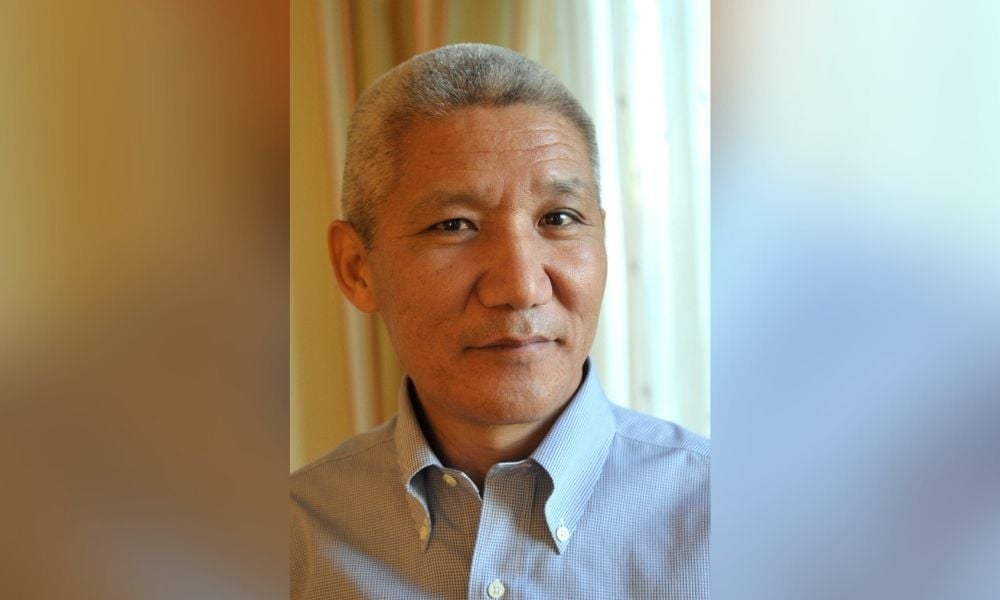Check out these tips on how to improve your leadership skills by practicing compassion

Are you a mindful leader? Could you use a couple simple tips on how to become more compassionate?
Thupten Jinpa, the Dalai Lama’s English translator who has worked with the Neurosciences Institute at Stanford University and now is an adjunct professor at the School of Religious Studies at McGill University, is offering some tips at the Portfolio Management Association of Canada’s 2021 national online conference tomorrow afternoon.
Jinpa, who wrote A Fearless Heart: How the Courage to Be Compassionate Can Transform Our Lives, has introduced many public-facing service sectors, such as health care, education, and law enforcement, to insights and techniques developed from traditional Tibetan Buddhism. He told Wealth Professional these also apply to wealth managers, who are responsible for people’s financial well-being.
“There are certain universal fundamentals, and the key factor is relationship,” he said. “It’s important to be aware of your responsibility and how your own being, style, and tone of leadership really impacts the culture and fabric of your community.”
Even though he said this industry is “primarily about making money from money”, he recommended advisors bring a compassionate intention to it by recognizing that what they do impacts people’s well-being – “so you’re not relating to your clients purely as clients, but also bringing this service kind of motivation as part of your work.
“If you’re able to see some value beyond making money for yourself and your family in the work that you do, then a sense of joy can come because we human beings are social creatures. When we’re able to make a positive impact on someone’s life, we feel happy. Then we feel in some ways greater than ourselves. We feel bigger than ourselves, because we are able to move beyond the confines of our self-focus.”
Jinpa said finding more motivation than money is also important to millennial employees, who want to find meaning in their work.
“Even to retain talent, wealth management leaders need to articulate that the profession that they’re engaged in can have a beneficial dimension in helping others,” he said. “That way, they can bring a sense of purpose and meaning to the work that their employees do.”
Leaders who take compassion seriously can also relate to employees in a more human way. Jinpa said that makes employees feel valued, and makes the team stronger. Given how many surveys point to employees being disengaged from their work, he added that making employees feel valued and recognized, along with showing them how to see their work as beneficial, can make a big difference.
While that may sound simple, Jinpa said many leaders compartmentalize – and don’t show their more human side at work. While that less empathetic leadership style may have worked in past decades, it doesn’t now. Today’s leaders need to be mindful and show empathy and self-awareness, but they can cultivate that compassion in two simple ways.
First, they can set their intention when they arrive at work. “Instead of immediately launching into the computer, just sit at your desk and take a deep breath. Quiet your mind and then connect with your intention for the day,” said Jinpa, noting it can even be done before you have to speak to an employee, so you’re clear about how you’re going to present yourself. That practice can be accomplished in minutes.
Second is to recognize that humans have a natural aversion to difficult emotions, even if they’re an important part of life. Such emotions can also “be contagious”, he said, “so just being able to bring some awareness to your emotions and sit with them and not suppress them is a skill.” He suggested taking time to sit and reflect on what happened each time that you have a difficult conversation or meeting.
“Otherwise, we just move on to the next thing,” said Jinpa. “Then, we don’t really learn much from what happened before. But, we also bring whatever emotional experience that we just had to the next person. So, creating those spaces in between really makes a big difference, so you can bring freshness to your next encounter.”



